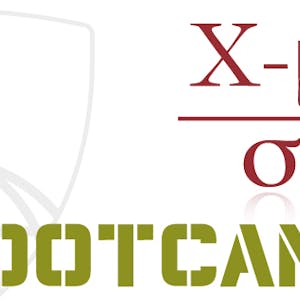Join the Mathematical Biostatistics Boot Camp 1 to gain a strong foundation in probability, statistical concepts, and elementary data analysis. This comprehensive course, offered by Johns Hopkins University, is designed for students with junior or senior college-level mathematical training, including a working knowledge of calculus.
Throughout the course, you will delve into essential topics such as probability, expectations, random vectors, conditional probability, likelihood, distributions, confidence intervals, bootstrapping, and much more. The curriculum is tailored to cover a wide range of fundamental concepts in biostatistics, enabling you to develop crucial analytical skills and apply statistical methods in various research and data analysis contexts.
Certificate Available ✔
Get Started / More Info
This course comprises four modules covering a wide range of topics such as probability, random vectors, conditional probability, likelihood, confidence intervals, bootstrapping, and more. Each module is designed to provide in-depth understanding and practical knowledge in biostatistics.
Welcome to the first module of the course, where you will explore the fundamental concepts of probability and statistical analysis. From understanding random vectors to exploring expectations and probability, this module sets the groundwork for your biostatistics journey.
Dive into the world of conditional probability, Bayes' Rule, and likelihood in this module. Understand how these concepts play a crucial role in biostatistics and gain practical knowledge on applying these principles to real-world data analysis scenarios.
This module focuses on confidence intervals, bootstrapping, and plotting techniques essential for biostatistics. Gain practical knowledge on constructing confidence intervals, utilizing bootstrapping methods, and mastering the art of effective data visualization through plotting.
Explore the concepts of binomial proportions and logarithms in this module, gaining insights into their significance in biostatistical analysis. Dive deep into the world of binomial proportions, understand their properties, and master the utilization of logarithms in statistical analysis.
This course provides a foundational understanding of essential math for Data Science, covering algebra, calculus, linear algebra, and numerical analysis.
Calculus through Data & Modeling: Applying Differentiation provides practical applications of derivatives to estimate functions, locate extrema, and solve optimization...
Games without Chance: Combinatorial Game Theory is an in-depth exploration of mathematical analysis and strategy in games without chance moves.
This course delves into trigonometry and analytical geometry, exploring their practical applications. Participants will gain a comprehensive understanding of trigonometric...